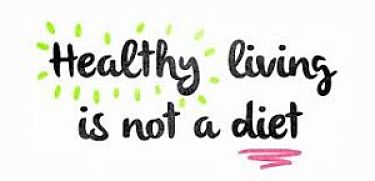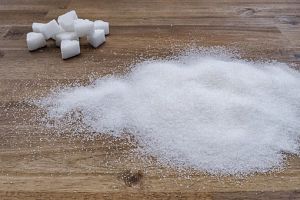Refined Sugar
Sugar consumption has steadily risen in recent years and the USDA now reports that the average American consumes around 150 pounds of sugar per year. Sodas and energy drinks are a major source of refined sugars in the American diet, and even fruit juices are working against them. Don’t let the word ‘fruit’ fool you. Some of these fruit drinks are stripped of all nutrients and have more additives and sugar than soda.
Not all sugar is automatically bad for us. Sugars naturally found in fruits, veggies, and whole grains make up a crucial part of a healthy diet. Where the problems lie, and the risk of cardiovascular diseases and obesity come into play, is with the amount of added sugar in our diets.
The World Health Organization recommendation for sugar consumption is no less than 10% of calories, but this recommendation should be much less. Those that are overweight, pre-diabetic, or suffering from any kind of health issue should limit and/or avoid sugar. Free sugar, meaning sugar that isn’t bound to fiber in fruit, can lead to inflammation, blood sugar instability, and, over a period of time, type 2 diabetes. If you don’t have exercise in your life, then it is in all likelihood you’ll develop these problems.
A daily dose of sugar causes altered internal pH levels resulting in a more acidic body. It is believed that an acidic environment is a breeding ground for disease, whereas an alkaline body promotes good health. To correct any type of imbalance, the body draws on mineral stores, to protect the blood, so calcium is drawn from the bones and teeth, which is enough to weaken the bones.
Refined sugar may even be damaging to the digestive system, particularly for those who have difficulty digesting carbohydrates. Refined sugar is essentially sugar that has been processed so much that it is depleted of its naturally occurring vitamins and minerals. This leaves a pure, refined carbohydrate which the body cannot easily use. Some examples include white sugar, powdered sugar, and in some cases brown sugar, which is often white sugar with some molasses added.
Here is how eating excess refined sugar may affect your body:
Liver
Refined sugar is made up of two parts, one molecule of glucose and one molecule of fructose. The liver is responsible for breaking down most of the glucose in the body, and more work from liver is required to break this compound down. The liver stores excess sugar as glycogen (storage friendly version of glucose). Eating large amounts of refined sugar daily, may overload the limited storage space of the liver and cause it to expand. When your liver reaches its maximum capacity, the excess glycogen will be converted into fatty acids and deposited in the inactive parts of the body. This can include your thighs, bottom, stomach and breasts. Some fat can remain in the liver and if this is allowed to build up over time, it may lead to non-alcoholic fatty liver disease which can lead to many other medical conditions, including liver toxicity and cardiovascular disease. Changes in metabolism may also have an effect on hormonal signals, resulting in damaging effects to the liver
Heart
There has been some research which has found a link between refined sugar and unhealthy levels of blood fats, also called “dyslipidemia”. Eating large amounts of refined sugar may be responsible for higher triglycerides and low HDL, which is healthy cholesterol levels. As HDL cholesterol helps to transport cholesterol from the body’s cells back to the liver, low levels may result in an increased risk of heart disease.
Addictive
For most people, refined sugar can be quite addictive. There are those times where you feel you simply need a block of chocolate, or a dish of ice cream. There is more than just having good willpower at play here. When you eat refined sugar, it can cause a huge release of dopamine (a brain chemical that helps us feel happiness or pleasure) in the reward centre of the brain. Unfortunately, nutrient-rich foods such as fruit and vegetables may not contain, or cause the brain to release, large amounts of dopamine. This is why people who eat lots of refined sugar continually seek out foods that will produce these positive feelings again and again. It is also important to understand that the “happy feeling” you get from eating refined sugar can override the “I’ve had enough to eat” mechanism from other digestive hormones. This means that you can be at greater risk of eating more than what your body actually needs and the reason you keep craving sweets. While it is addictive, you can wean yourself off from it. Slowly reduce the amount that you eat, and over time you may find that the less you eat, the less you crave. If you love eating cakes and sweets, then do some research and play around with some alternatives.
Obesity
Due to the effects refined sugar has on our brains, there is a greater chance of becoming overweight or obese if it is consumed in excess on a regular basis. Eating refined sugar can override feelings of fullness, meaning you don’t always feel as satisfied as what you would be if you were to eat a plate full of veggies and some lean protein. This is because it is filled with empty calories and also lacks important food components, such as fibre, which also help us to feel satisfied.
Sugar may be a contributing cause to obesity because it is in so many products these days. Manufacturers have found clever ways to disguise the word “sugar” in their products, which can make it very hard to identify in the ingredients list. Grocery store shelves are littered with junk foods that contain massive amounts of sugar. In fact, some prepackaged sports foods, like energy bars, contain more sugar than a candy bar. Many foods contain hidden sugar, or sugar that is masked by other names such as high fructose corn syrup, dextrose, and sucanat. While sucanat is probably better for the body than corn syrup, the effects of sugar on blood sugar and internal organs are similar. Unfortunately, refined sugars are also found in foods which appear to be healthy, such as breakfast cereals, muesli bars, low-fat flavoured yogurts and milks, and various jar and canned sauces.
So what about the sugars in fruit and are these good for your body? Many people have read all about the negative effects of refined sugars, so they tend to also stay away from fruit with a fear these will cause the same issues. While fruits still do contain sugar, this is often much less than what you would find in your typical chocolate bar. Fresh fruit can also contain other essential nutrients (such as vitamins, minerals, and antioxidants), which our bodies need to function day to day. On top of this, they are also loaded with fibre, which can help our bodies to recognise when we’ve eaten enough. A few servings of fruit every day is an important part of a healthy, balanced diet. Remember that fruits are best consumed fresh and whole, and if you decide to juice them, you are potentially removing some of their nutrients and fibre.
The majority of the health issues that have been mentioned can occur over time and come about as a result of excessive sugar consumption. Having the occasional treat here and there is okay. Consuming as many whole foods as possible within your day-to-day diet is highly recommended. It is important that we are aware of what we are putting in our bodies and the effects it can have.
Sugar doesn’t have the best reputation. It’s the bad guy behind surprise cavities, late night dessert binges, inevitable sugar crashes, and those extra pounds that we just can’t seem to lose. Yet, somehow, we can’t get enough. Some sources estimate the average American consumes about 22 teaspoons of sugar per day—more than twice the recommended amount! And some researchers even believe it should be considered a controlled substance. So why exactly is sugar so bad? From adding unnecessary calories to many foods to being a potential cause of weight gain, the reasons go on and on…
Sugar Babies—The Need-to-Know
Sugar can go by many names, especially when it comes to food labels; high-fructose corn syrup, dextrose, raw sugar, and glucose are just a few of its many disguises. Natural or processed, sugar is a simple carbohydrate that the body uses for energy.
Here’s how it all works once that sugar goes down the hatch: Because many types of cells in the body can process glucose, it’s much easier for the body to process foods containing only this starch, like bread or potatoes. Putting refined sugars in liquid form like, say, soda or juice, means it hits the liver even quicker than eating something with the equivalent dose of sugar (like whole fruit), and requires the liver to metabolize the fructose and glucose more quickly.
What this means for our bodies isn’t so great: Studies have found that when a significant dose of fructose hits the liver of some animals very quickly, a good part of it is converted to fat. In humans, this conversion of fat causes insulin resistance (or metabolic syndrome), which often contributes to the development of diabetes. This is not awesome news, since Americans consume 19 percent more added sugar (or any sugar not found in a food’s natural state) now than we did in the 1970s! Maybe it’s time to put down the Sour Patch Kids and pick up that apple we mentioned?
Besides promoting weight gain and obesity, recent research suggests overdoing it on sugar (and especially fructose) (similar to the effects alcohol has). And one study suggests there may even be a potential for sugar abuse when, like alcohol and tobacco, sugar affects hormone levels in the brain, leading to decreased feelings of fullness and increased consumption.
Get Health News you can use!
Sign up for our Newsletter NOW!


